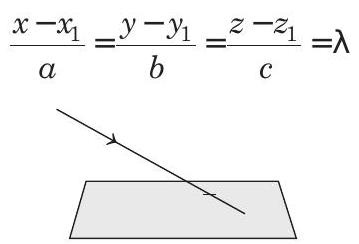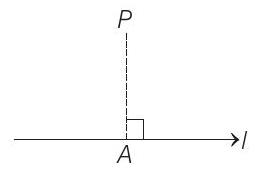3D Geometry 3 Question 42
####42. The point
(2012)
(a)
(b)
(c) 2
(d)
Show Answer
Answer:
Correct Answer: 42. (a)
Solution:
- PLAN It is based on two concepts one is intersection of straight line and plane and other is the foot of perpendicular from a point to the straight line.
Description of Situation
(i) If the straight line

intersects the plane
Then,
(ii) If
Then, (DR’s of

Equation of straight line
Again, we can assume
and DR’s of
Since, perpendicular






